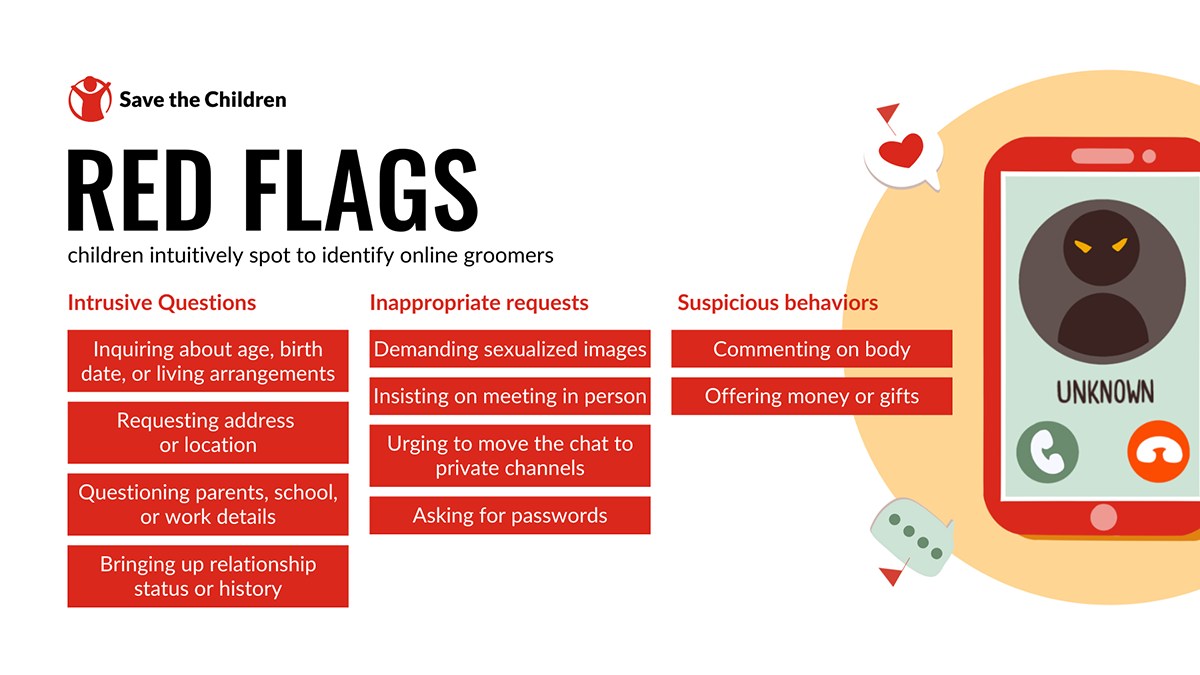Children are not as easily manipulated online as commonly thought, a new global Save the Children study finds. Instead of blindly trusting strangers, many take time to get to know who they talk to.
The 2024 study, "Protecting Children from Online Grooming," published by Save the Children, Safe Online, Western Sydney University’s Young and Resilient Research Centre, and funded by Save the Children Hong Kong, engaged 604 children across seven countries, including the Philippines. It revealed that children are guided by their gut feelings and can identify "red flags" in online interactions.
"A series of red flags signal that a contact cannot be trusted and, in some instances, are reason enough to block or delete contacts from their online friendship networks," noted that study.
These red flags include comments about a child's body or appearance, questions about their location or school, requests for personal information, and inquiries about their personal life, such as relationship status.

A recent global Save the Children study on online grooming reveals that children can recognize red flags in online conversations.
Despite these intuitive precautions, children are not always protected as they remain vulnerable to incentives such as a strong desire for friendships or financial benefits that keep them connected with strangers. This is when they fall prey to groomers.
“The findings challenge the stereotype that children are naïve in digital spaces. However, there is still an urgent need to strengthen accessible and available online safety education, especially for young girls in disadvantaged communities," said Wilma Banaga, Save the Children Philippines’ Protection Adviser.
In the study, children specifically call for lessons on identifying online risks, distinguishing safe and unsafe information to share, knowing where to seek help, responding appropriately to unknown people, and reporting inappropriate behaviour online.
Recognizing this need, Save the Children Philippines has been implementing programs to combat Online Sexual Abuse and Exploitation of Children (OSAEC) and Child Sexual Abuse or Exploitation Material (CSAEM).
Since 2020, the organization has trained 24,628 children across Metro Manila, Cavite, Davao del Norte, Bukidnon, and General Santos City. These areas have been identified as high-risk locations for OSAEC.
"We welcome and recognize children's existing awareness of threats that exist on the internet—what their generation considers their ‘playground.’ By building on their knowledge, we can better equip them to navigate digital spaces safely and confidently," Banaga said.
Save the Children Philippines' program aligns with Republic Act 11930 or the Anti-OSAEC and Anti-CSAEM Act, which we championed in legislation in 2022. We remain committed to working for and with children by reinforcing education and information campaigns that strengthen their ability to adopt safer behaviors online.
If you suspect or witness cases of OSAEC, report them immediately by contacting the Makabata Helpline at 1383, its online platforms, or the Philippine National Police’s Women and Children Protection Center’s Aleng Pulis hotline at 0919-777-7377.
Learn more about how to keep children protected by visiting www.savethechildren.org.ph.